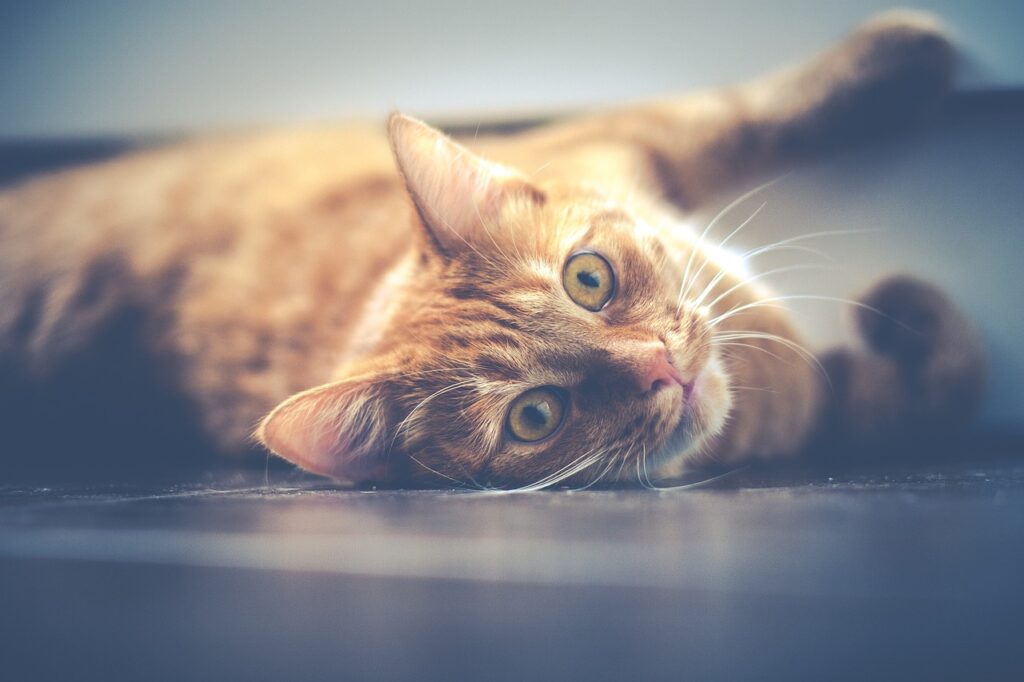Can Cats Eat Parsley? – Yes, They can
Many pet parents wonder whether their feline friends can nibble on the greens from the kitchen, including parsley. If you have a kitty that seems curious about this particular herb, the answer is yes, cats can eat parsley. Parsley is generally safe for cats in small amounts and can even offer some health benefits. It’s important, however, to introduce any new food into your cat’s diet with caution to ensure it doesn’t upset their stomach.
Can Kittens Eat Parsley?
When it comes to kittens, their dietary needs are more sensitive than adult cats. While parsley is not toxic, we have to consider that kittens have delicate digestive systems. So, the answer is with caution. Feeding kittens parsley should be done sparingly and never as a major part of their diet. Always consult with a vet before introducing any new food to a kitten’s diet.
Things to consider when feeding parsley to kittens?
With kittens, the rule of thumb is moderation and oversight. Their bodies are still developing and therefore less capable of handling diverse foods. Before giving parsley to a kitten, ensure it is finely chopped to avoid choking hazards and observe the kitten closely for any adverse reactions. Additionally, always prioritize a kitten’s core nutritional requirements before introducing garnishing herbs like parsley.
Nutritional Benefits of Parsley for Cats – Why Parsley is Good for Cats?
Rich in Vitamins
Parsley is packed with vitamins, including vitamin K, which is essential for maintaining healthy blood clotting in cats. It also provides vitamins A and C, which can support the immune system and vision.
Contains Antioxidants
This herb is also rich in antioxidants, which can help to neutralize free radicals in your cat’s body, potentially reducing inflammation and supporting overall health.
Acts as a Diuretic
Parsley has diuretic properties, meaning it can help to increase urine production, which in turn can aid in flushing out toxins from your cat’s system, keeping their kidneys healthy.
Good for Digestive Health
It can help to support digestive health in cats by promoting the elimination of waste and helping to soothe the stomach.
Freshens Breath
Parsley’s fresh scent can help combat bad breath in cats. A smattering of parsley in their diet can leave their mouth smelling better.
Potential Allergies: Can Cats Be Allergic to Parsley?
While it’s not common, cats can potentially be allergic to any food, including parsley. Keep an eye out for any unusual signs after feeding parsley to your cat for the first time.
Symptoms of Parsley Allergies in Cats
- Gastrointestinal Distress: Look for symptoms such as vomiting or diarrhea, which could indicate an allergy or sensitivity to parsley.
- Itching or Skin Irritation: Allergic reactions can sometimes manifest as itchy skin or a rash. Monitor your cat for any changes in their coat or skin condition.
- Respiratory Issues: In rare cases, a severe allergic reaction could cause respiratory problems. If you notice any difficulty breathing or wheezing, contact your veterinarian immediately.
What to Do If Your Cat Shows Symptoms?
- Discontinue Feeding Parsley: If you suspect your cat is reacting poorly to parsley, stop feeding it to them immediately.
- Visit the Vet: It’s best to have a professional evaluate your cat’s symptoms. They can perform tests to determine the cause and advise on treatment if necessary.
- Monitor Your Cat: Keep a close eye on your feline after they’ve shown allergic symptoms, and consult your vet if you have any concerns.
Recommended Amount: How Much Parsley Can a Cat Consume?
The recommended quantity of parsley for a cat is a small pinch (about one teaspoon of the chopped herb) no more than once or twice a week. Parsley should only ever be a small part of a cat’s diet and not a regular daily addition.
Things to Consider When Feeding Parsley to Cats
Always ensure that the parsley is fresh and thoroughly washed to remove any potential pesticides or chemicals. Never replace any portion of their main diet with parsley, and if you grow parsley at home, make sure it’s out of reach so your cat can’t overindulge.
How to Feed Parsley to Cats: A Quick Guide
While parsley can be a nice treat for your cat, let’s look at some safe ways to incorporate it into their diet to enjoy the herb’s benefits without any risks.
Simple Parsley Garnish
Sprinkle a small amount of chopped fresh parsley over your cat’s regular food as a garnish. This adds a fresh touch and provides health benefits.
Parsley Infused Water
Steep parsley in water to create a mild ‘tea’ and offer it to your cat in a small dish. It can help freshen their breath and provide some nutrients.
Frozen Parsley Treats
Chop parsley and mix it with water in an ice cube tray. Freeze and give your cat a parsley ice cube on a hot day for a refreshing and hydrating treat.
Conclusion
Introducing parsley into your cat’s diet can have benefits, but it’s crucial to do so carefully and in moderation. Always consult with your vet before adding a new food to your pet’s routine, particularly if your cat is young, has health issues, or is on medication. While parsley can be a healthy occasional treat, your cat’s main diet should be nutritionally complete and balanced.



